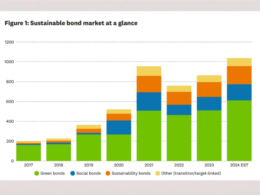This week, the Global Reporting Initiative (GRI) co-hosted an official side event preceding the Fourth International Conference on Financing for Development (FfD4) in New York in partnership with the UN Development Program (UNDP). The event explored the role of corporate reporting in aligning financial policies with sustainability goals, focusing on materiality, investor expectations, and global supply chain resilience. During the session, GRI partnered with ISSB and the Global Impact Investing Network (GIIN) to advocate for a comprehensive corporate disclosure framework. This framework would require companies to address both financial and sustainability impacts, offering a full picture of their risks, opportunities, and contributions to sustainable development.
A cornerstone of this conference is aligning global financial systems with the Sustainable Development Goals (SDGs) to accelerate progress towards the 2030 Global Agenda for Sustainable Development. FfD4 will assess progress on past commitments, tackle emerging challenges, and explore reforms to the global financial system to better align it with sustainable development goals. With its focus on financing mechanisms, the conference is poised to shape the future of sustainability-driven finance and reporting.
Central to these discussions was the newly published Elements Paper, which is served as the foundation for negotiations at the New York event. The paper reflects contributions from UN Member States, international organisations, civil society, and private sector leaders. A key recommendation in the document advocates for organisations to adopt sustainability disclosure legislation based on the concept of “double materiality.” This approach, which combines standards from the International Sustainability Standards Board (ISSB) and the Global Reporting Initiative (GRI), seeks to enhance transparency on corporate impacts and their alignment with the SDGs.
Peter Paul van de Wijs, Chief Policy Officer at GRI, highlighted the importance of FfD4 in advancing sustainable finance. “Understanding corporate impacts, risks, and opportunities will help redirect capital towards more sustainable outcomes. Combining GRI and ISSB standards ensures more comprehensive and effective reporting to support the SDGs,” he said.
UN-DESA’s Shari Spiegel, Director of Financing for Sustainable Development, emphasised that FfD4 will be a crucial platform to strengthen global coordination on sustainable finance legislation. “As a UN-led process, FfD4 must ensure no country is left behind or overburdened by sustainable finance requirements. The conference is the ideal forum to push for SDG impact to be central to financial measures,” she stated.
The importance of global collaboration was echoed by Marcos Mancini, Global Head of Sustainable Finance Policy, who warned of inefficiencies without better coordination. Similarly, Sean Gilbert from GIIN stressed the need to build on existing tools and resources to scale impact investing effectively.
The role of the public sector was also hihglighted, with Dave Warren, Director of the International Public Sector Accounting Standards Board (IPSASB), advocating for public sector sustainability standards. He noted that aligning IPSASB standards with GRI and ISSB would improve disclosure practices and mobilise resources for sustainable development.















